|
3.5 stars
A sister tries to solve the cold case of her sister's murder while helping her mother struggle through a cancer treatment. This family's got issues, and the worst is yet to come. Writing: ★★★★ Character development: ★★★★★ Surprise factor: ★ Sylvie was a teenager when her older sister, Persephone, was murdered. Out late one night with a secret boyfriend, Persephone was found murdered on the side of the road a few days later. The case was never solved, and Sylvie's life changed for the worse. Sylvie's mother, Annie, was always mercurial. On the 15th of every month, she had a "Dark Day." After Persephone's death, every day was Annie's "Dark Day" and the spiral of alcohol made everything worse. Now it's the present day, and Annie is dying from cancer. Jill, Annie's sister, begs Sylvie to come home and help her take care of Annie. Sylvie doesn't want to return to that house, but she does. To make matters worse, one of the nurses in Annie's cancer ward is Ben, Persephone's secret boyfriend. Sylvie knows Ben's the true killer—she's just got to prove it. Struggling to repair her relationship with her mother and deal with the feelings lingering as a result of her sister's cold case, Sylvie decides to solve Persephone's case once and for all. The good: -The character development in this novel is stunning. I loved the relationships, and their faulty steps toward family healing were the saving graces of this novel. Without the human element, The Winter Sister would have really suffered. -The writing style was compulsively readable. You won't want to put this down! The bad: -I think I've read too many thrillers with this particular twist, because I was (unfortunately) able to guess it within the first few chapters. Now, I kept reading on hoping my guess was a red herring, but...it wasn't. That was it. I don't think it was hidden enough in the plot for those of us who have read this twist before, as the clues were loud and proud. -The main character, Sylvie, was incredibly naive...almost to an unbelievable extent. She has harsh, unchangeable opinions about things, and ignores hard facts to keep her illusions. But then in other areas where she should be more cautious, she threw it all to the wind and plowed ahead, regardless of the danger involved or the impact. It made Sylvie read really young to me, and made her character inconsistent.
0 Comments
4.5 stars
A cloistered group of intellectual college students. A murder. The aftermath. The Secret History dazzles with intelligent turns of phrase and dense writing, and doesn't care if you like its characters. Writing: ★★★★★ Pacing: ★★★ Characters: ★★★★★ This novel has such an iconic first sentence. The snow in the mountains was melting and Bunny had been dead for several weeks before we had begun to understand the gravity of our situation. Doesn't that scream to be read? I read it and went, alright, time to strap in. We're in for a good one. And this book follows its iconic first line with an expertly crafted novel. I won't pretend that that the pacing was perfect—for anyone who's read this, you'll probably agree that it was long. And even if it doesn't take you too long to read, the intense mental musings of the main character, Richard, are so rambling at times and deviate into interesting memories so frequently that it often feels like you're living this multiple-month story with him. In detail. Play by play. This is definitely not a "who-dun-it" novel, but a "why-dun-it." We know from the jump that this tight-knit group of friends murdered one of their own one crisp spring morning. What we don't know is why, and what happens to them afterward. The Secret History has two parts, the "before" the murder in Part 1, and the "after" the murder in Part 2. I strongly preferred Part 1, as the suspense was more important—we knew Bunny was going to die, but when? and why? I loved that level of guessing. Once things evolved....eh, it was definitely more of a struggle. I felt the author lost some of the momentum as the tone of the novel shifted into more of a Crime and Punishment vibe. But, regardless, I loved it. Beautifully written, lovingly crafted. 4.5 stars
I didn't expect this level of over-detail and I didn't expect this level of world-building complexity. This was one dense, richly-developed world...in one (arguably) too long book. In honor of how freaking long this book was, my review is literally massive. Concepts: ★★★★★ Pacing: ★★ 1/2 Climax: ★★★★★ million freaking stars Character development: ★★★★ Enjoyment: literally both ★★ and ★★★★★ (Read the blurb if you want to know the basics, this is a reaction review!) So I've read and obsessed over Maas' other two series. I was primed to love this. I was ready for the angst and the drama. House of Earth and Blood was so not what I was expecting—in a really refreshing way, even if I didn't like parts of it. It's really clear that this book was trying to distinguish itself from the author's previous works. The focus on drugs, sex as an outlet, trauma, death, and depression is on the immediate surface, and the insistence on character strengths felt like direct comparisons (or, honestly, "anti" comparisons) to other Maas characters. This is a story that takes its time, and it doesn't give one crap about how you feel about it. Was it too long? ...WOW, yes. This tome could have easily been a shorter novel. Scenes dragged, story arcs stagnated in the middle with filler content, and some things that were clearly meant to be character development felt like wasted space because it was just. too. much. A girl can only take so many hundred pages of investigation and undercover angst. (I'm sorry, Maas, I love you, but that needs to be said.) However. The level of detail was oddly necessary. This world is SO complex, SO detailed, and obviously part of a larger concept. The new terms and sense of hierarchy alone were extremely confusing at the beginning, so I was happy to receive the paragraphs of detail. To be honest, if there had been more PLOT in the first half I would have said, hey, why didn't we hack this into two separate books? Easier doses, easier tomes to hold in your hand. (My wrists hurt now, this was so heavy!) Ok, on to the world. I loved this universe. It feels like the perfect blend of paranormal, urban, high-fantasy, and noir. We've got levels of power, a crooked ruling class, angels, demons, oracles, Fae, lesser fae, sphyinx, mermaids, werewolves, shifters, vampires, undead, witches, humans, sharpshooters, wraiths, murders, side plots, fallen heroes, undercover drug operations, modern technology, burgers and fries, encrypted flash drives... Overwhelmed? Yeah, same. (But it was awesome.) So the two main characters. Bryce, the demi-Fae/human woman with no powers of her own but a LOT of rage. Hunt, the fallen angel with lightning abilities sold into slavery to the ruling Archangels. I loved Bryce. I understood her, was interested in her motivations, and really enjoyed watching her character grow and morph through what felt like years of my life (god, such a long book. I can't say that enough.) But Hunt... not so much. This was definitely a "me" problem, but I didn't really care about him. As he's half of the POV and meant to be the dreamy love interest, this sucked. I wanted to be swept away by a new version of a Maas male character—with hopefully less problematic pieces, but still—and instead I got an angel that I didn't know what to do with and didn't feel any draw towards. I just...didn't find him interesting. And so Bryce's fascination with him was boring. Etc. There is one VERY memorable turnaround for Hunt near the end, but I'm not sure I can forgive 75% of the story for extremely bland crap just because the last 25% made Hunt worth caring about. Is that just me? But, despite all of the above that makes it sound like I didn't love this...I loved this. The last 100 pages made me gasp, ugly-cry, rage, gape, scream, weep softly, and ultimately toss the book to the side and go "damn" softly to myself. It was AMAZING. It was EPIC. It set us up perfectly for the NEXT ONE. It was absolutely worth the wait and made me forget the book's earlier frustrations. This kind of ending is just too fun to read to rate less than 5 stars. (At least for me.) Just...maybe not so long next time? Please. 4.5 stars
Super weird, definitely meant to disturb, and not afraid of killing any expectations you had about faeries. Welcome to You Let Me In. Concept: ★★★★ 1/2 Writing style: ★★★★ Pacing: ★★★★★ Content warnings: Yes, a lot of them, please see end of review. You Let Me In comes out on April 21. First off, I'd like to make a disclaimer that I'm about to praise this novel, but it in no way means that I am praising the subject matter. There are dark themes in this, and if you are concerned about warnings please see the end of this review. You Let Me In follows the story (or stories?) of Cassandra Tipp's life. Tipp was a reclusive writer with a troubled upbringing and a tragic life, and it's time for her to tell her story. She's ready to share her truth...but you might not be able to believe it. It's literally so hard to decide what to share and what not to share about this novel. I went in with very little—just what's in the description. I think in order to enjoy this for what it is, you should go in with little information. One of the main themes at play in You Let Me In is the concept of memory and trauma. Did these events happen as Cassandra said they did? Is it possible for two conflicting stories to both exist? What is the "real" story? Is there a "real" story? Now, you might be wondering, this was published by TOR...the fantasy publisher. Memory and trauma don't sound fantastical. What's up with that? According to Cassandra, the "Pepper Man" is her closest companion. A "faerie," the Pepper Man lives next to Cassandra, lives off of Cassandra, and ultimately entwines her life with his and takes her on adventures under the mound. Faeries in this are not handsome, not romantic, and NOT something mysterious in the woods. These faeries are the undead/unmade. I don't know if I agree with the designation of "faerie" in this, but it IS very otherworldly. (In a way, I think readers who enjoyed Never Contented Things will like this too. Similar executions on unsettling faeries meant to horrify.) My favorite aspect of this novel was its extremely masterful pacing and sense of truth. Novels often claim that they "leave the truth up to the reader." In my experience, they rarely deliver. There's always a more fleshed out "truth" to believe. In You Let Me In, this debut actually delivers on a double-edged sword of truth. What really happened? It's up to you. I know what belief I took out of this, but you and I might disagree. It speaks to the author's skill that we can have such opposing takeaways. One of the main sticking points (as I see it, anyway) for You Let Me In revolves around its placement in the discussion of speculative fiction at this point in time. It's getting harder and harder for speculative dark fiction to deliver on an engaging, well-crafted, and memorable narratives. On the one hand, it seems like we're just getting more twisted and triggering narratives to deliver on this promise. On the other, some of the recent entries into the genre are dark and yet amazing (see Follow Me to Ground, which I also loved.) While this one's themes are dark and its content very upsetting to people with different expectations, I found it extremely singular and one-of-a-kind. Does it fall on the side of "too much" because of that? I don't know. I struggled with my opinions. I definitely loved what it was doing in realm of writing and story development, but I really struggled to enjoy the content due to its extremely dark themes. Bottom line: read this if you like the genre, but definitely go in with eyes wide open regarding warnings and expectations. Thank you to TOR for an ARC of this title in exchange for an honest review. Content warnings: Potential rape (depending on the versions of the story), potential familial abuse (same as previous), consent issues throughout, bad family treatment of main character's mental health, childhood trauma, abortion discussed, death of a child (discussed, version of truth issue again), murder, mind games, problematic mental health professional, etc. 5 stars
The Black Jewels is my favorite world, favorite series. This new entry was all that it promised to be and more. Good installment?: ★★★★★ Readability (for new readers): ★★★★ Enjoyment: my heart hurts in the best way. perfect. The Queen's Bargain is being touted as a great entry point for new readers to join the Black Jewels universe without reading all of the backlist titles. I feel like I'm too close to the subject matter to reflect on that without some bias, but honestly, I think I agree. The author has done a fantastic job at conveying the key points of the world for a new audience, and yet continuing on with some of the old faces and old places for those of us who are up to speed. If you're a newbie reader to this series, don't hesitate—give this a try! I don't know what to say about this one, folks...read the blurb? It gives a lot of information. And then just jump in. It's perfect, Anne Bishop's writing is a treasure, and the characters are the literal best. After being so worried to read this—the last installment marked a pretty decisive end to certain things—I'm happy to report that this one stays true to the series while exploring new themes with grace. It's so, so good. I laughed, I cried, I sighed, and I totally lost my mind when I got to the end and ran out of words to read. Also, don't worry, there won't be a hiatus before the next one--The Queen's Weapons is already slated to be published in 2021. (YES!) Thank you to ACE and Berkley Publishing Group for an ARC of this title in exchange for an honest review. 4 stars
So I was enjoying this—but not loving it—for a good portion. But then they managed to knock me out from the side with something that I wasn’t expecting. Nice. Writing: ★★★★ Pacing: ★★★ Villain(s)/Reveal(s): ★★★★ You Are Not Alone was my first Greer Hendricks/Sarah Pekkanen book, and I can now say that I understand why so many people devour them. Shay is a lonely woman living in New York City. Her roommate, Shawn, just got a serious girlfriend and that girlfriend is slowly edging Shay out of her own apartment. Her job security isn't great, as Shay has been primarily temping for different data firms. Her social life is empty. Her love life is empty. Then one day, Shay witnesses a woman leap to her death in front of a subway train. A life, gone like that. A woman who could have been Shay, gone like that. Shay finds herself lost in a sea of post-trauma feelings and goes to the dead woman's memorial service, where she meets Cassandra and Jane. Cassandra and Jane are glamorous, put together, and effortlessly perfect. They're sisters, business partners, and fierce friends. When Shay emerges onto the scene, the sisters go on high alert. Something is afoot. As Shay and Cassandra and Jane entwine, it's important to realize that you are not alone. My thoughts: So I don't like domestic thrillers, as they're often about husbands and wives and "other women" and suburban neighborhoods. I'm not this author duo's usual reading audience. BUT, I think this book is meant for those of us who aren't in their normal reading audience, because its themes are meant for a different group of people—and more importantly, a wider one. If you're a woman, I think the odds are good that you would at a minimum relate to this. This is a fierce tale of sisterhood, female friend groups, women vs. other, and self-acceptance. Now I haven't lost my rocker, I know this is a thriller and it's obviously dark in themes. But I stand by what I just said. I was shocked to find some of the plot points in here and low-key understood some of the motivations. It's clear that this author pair is touching on an aspect of our female culture that was/is a hot button topic. It was really cool to read in a thriller setting. No spoilers here! Give this a read. Also, side note, I found the print formatting of the text to be super weird to read (lots of short, spaced out paragraphs). Not sure if this is typical for this author duo or not, but because of that I really enjoyed the audiobook much more than the print copy. The narrators are fantastic. Thank you to Macmillan and Libro.fm for my copies of this title in exchange for an honest review. 4 stars
Jennifer Weiner's latest is full of surprises and a deep dive into the world of influencers, body image, and acceptance. Characters: ★★★★ Body Image Discussions: ★★★ Plot/Arc: ★★★★ Daphne is a plus-size influencer in our modern world of Instagram, hashtags, and body acceptance. But she's still at the "accepting" part when it comes to her own body—and the life she leads on Instagram is a constant push and pull with her internal monologue. Drue Cavanaugh used to be Daphne's best friend, but when she burned Daphne and made their last epic fight about Daphne's weight, Daphne escaped and never looked back. Drue was rich, thin, blonde, and perfect—it's time for Daphne to cut her losses and be the average girl she was meant to be. Years later, out of the blue, Drue contacts Daphne and asks her to be in her wedding. She even offers to pay her. Turns out Drue's mean girl self hasn't done her any favors, and her influencer lifestyle needs to look perfect. Daphne knows she's been coerced and bribed, but she says yes anyway. She's never been able to say no to Drue for very long. Big Summer is mostly about Daphne's experience at the Cape with Drue's wedding, but it's also series of past memories of Daphne's childhood. And, more specifically, a journey through Daphne's mind as she glitches on every single moment with thoughts on her body and body size. Also, there was a huge twist about halfway through Big Summer that I was NOT expecting. I'm so glad the description didn't allude to it. I thought it made this novel so much better, and really enjoyed where it took Daphne. If I had to pick a negative to highlight, I'd say that this novel is the most "fat-focused" of any Jennifer Weiner that I've read so far. That feels weird to say as a negative, but hear me out--as someone who is plus-sized herself, I found it really disheartening that literally every single moment, every single thought, and every single plot point focused or mentioned something explicitly related to Daphne's weight. At the beginning, I was like "Yes! Someone gets it!" but towards the first half...and the middle...and the end...I felt myself wishing, desperately, for more balance in the main character. In a way, by focusing on this aspect of Daphne so much, we went past highlighting her "acceptance" to reducing her to that one characteristic...which I feel was a problem, as we're trying to make plus-size women feel seen and normalized. Not reduced to their weight, or distilled down to one trait of self body-hate. However, overall I thoroughly enjoyed this one, and am thrilled to see where Jennifer Weiner takes us next--don't miss this one this summer! Thank you to Simon & Schuster for an ARC of this title in exchange for an honest review. 4 stars
This alternative historical fiction novel centered on a "sin eater" in a version of Elizabethan England was dark, lyrical, and unforgettable. Concept: Pacing: Sense of place: Sin Eater comes out on April 7, 2020! May Owens is caught stealing a piece of bread in the streets of an alternative version of London. It's the time of the Virgin Queen. Taken to be sentenced, May is shocked to receive a one-of-a-kind punishment: she's been declared a sin eater. A sin eater is always a woman. She's branded by a collar displaying an "S," and branded with a black ink "S" on her tongue. She's not allowed to speak, she's not allowed to be touched, she's not allowed to be looked at, and her entire life is plagued by the limitations of her new position—she "eats" the sins of the dying. As you can tell, the job isn't great. May's life as a sin eater in this alternative London was fascinating, heartbreaking, and poignantly human. This is a lingering read. I really disagree with the comparisons claiming this tale is like The Handmaid's Tale and Alice in Wonderland—neither of those comparisons resonated with me and they really miss the connections to historical England and the lyricism of this novel. This is about the grimy underbelly of London, the seedy witchcraft of a prescience era, and the life of a pariah among and separate from the people. Also, there are no fantastical elements to this novel whatsoever, so fantasy fans take note. I still loved it, but would not call it a fantasy even in the loosest sense. Thank you so much to Atria Books for an ARC of this title in exchange for an honest review. |
Amy Imogene ReadsJust someone looking for her own door into Wonderland. Categories
All
Archives
July 2024
|
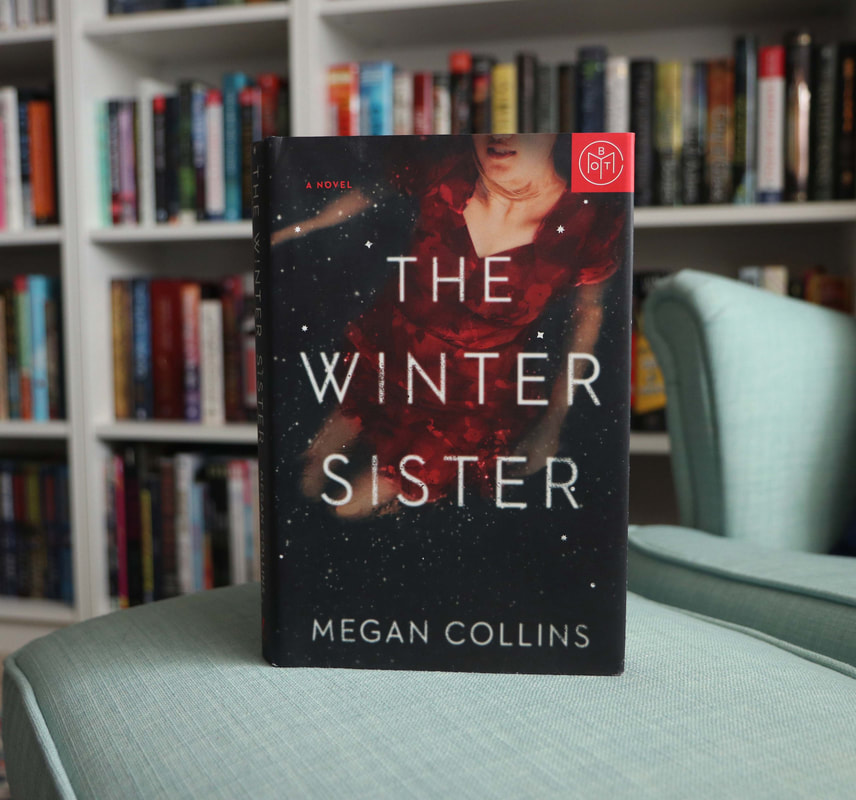
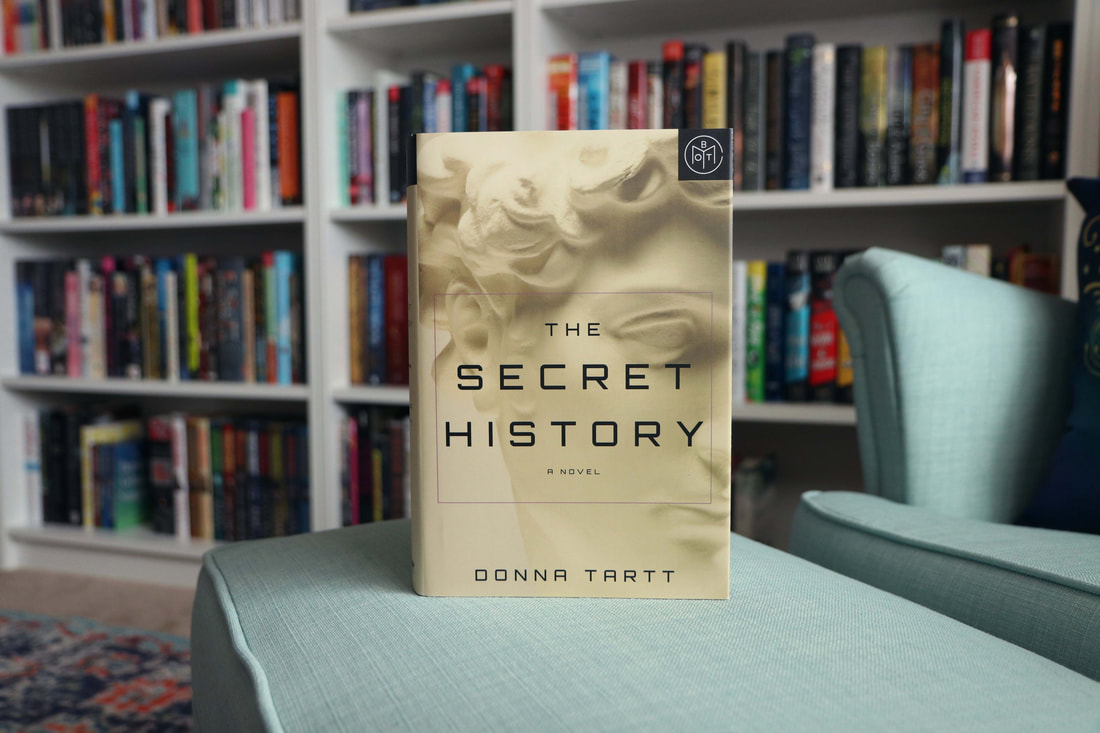
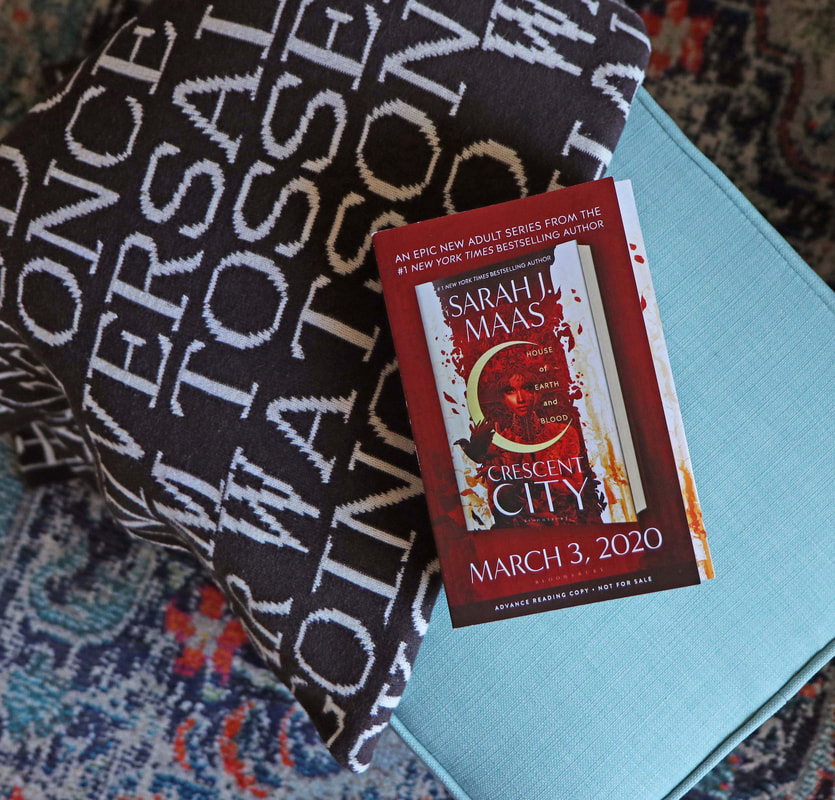
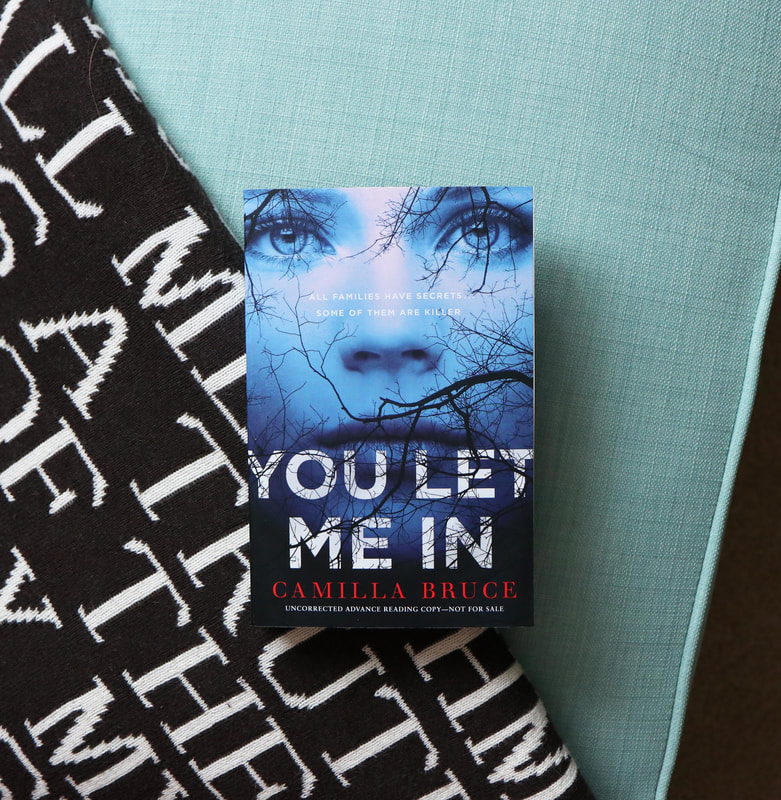
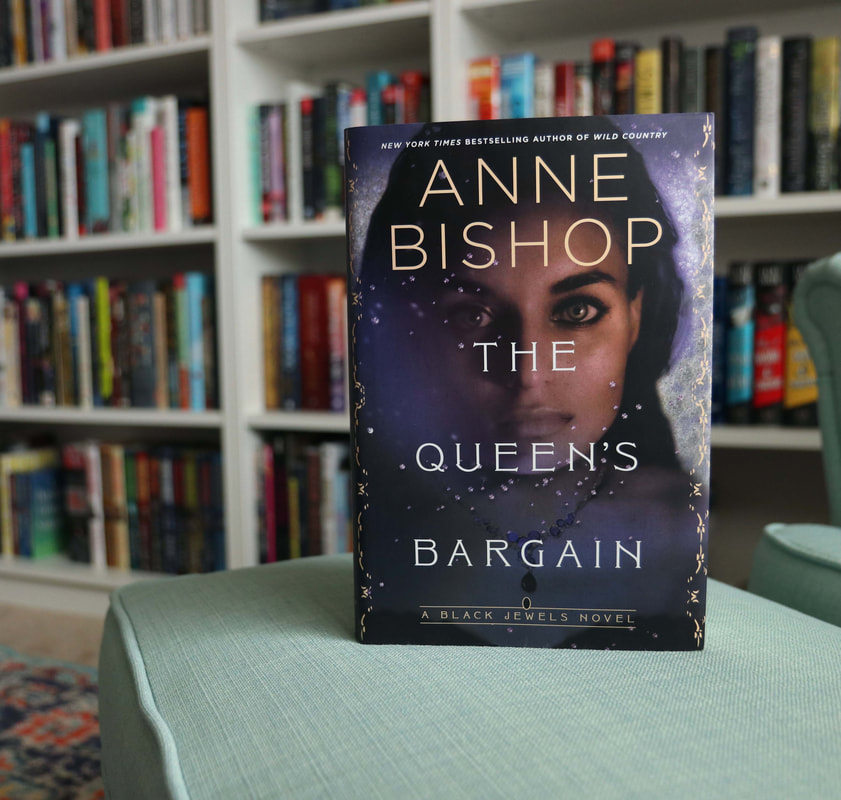
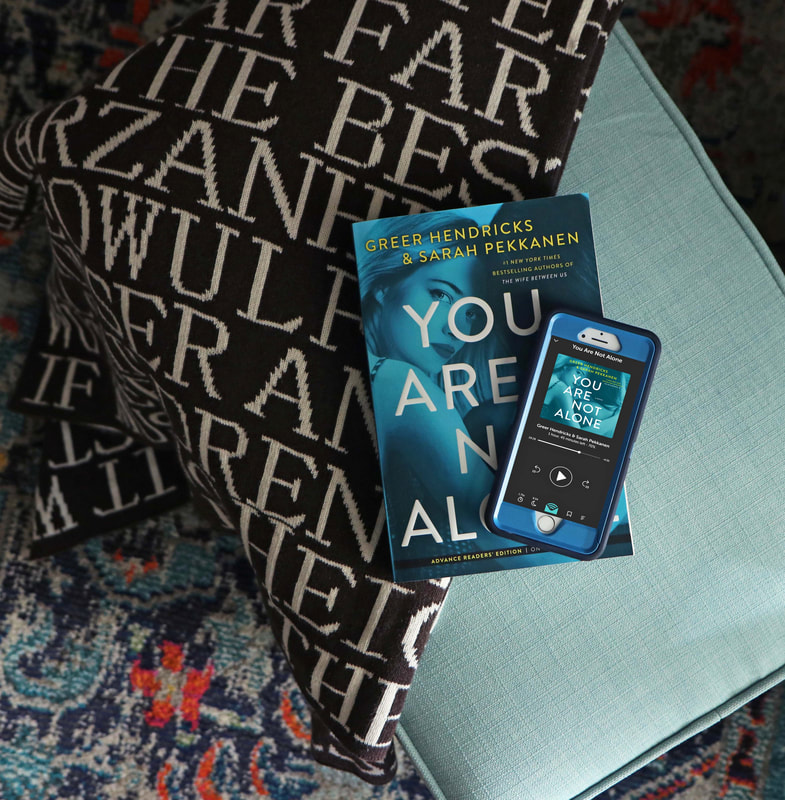

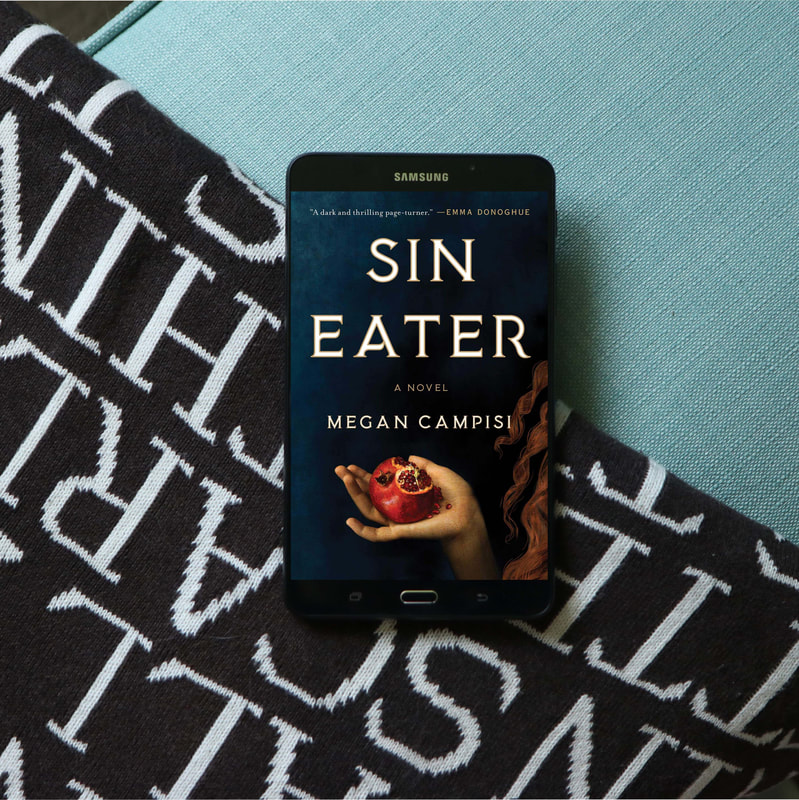

 RSS Feed
RSS Feed
